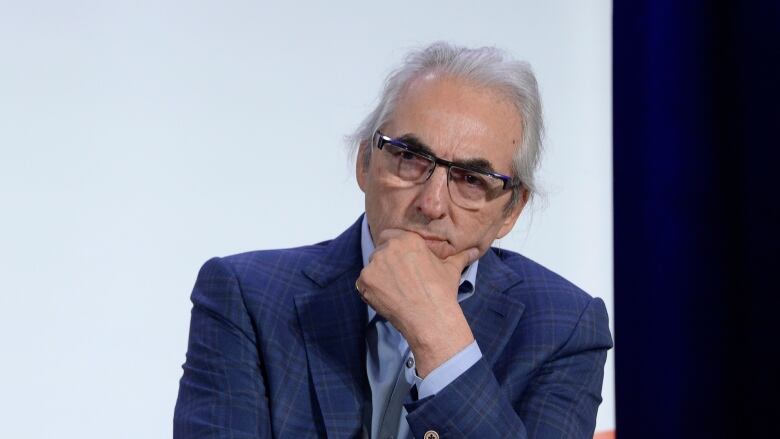First Nations leader says Catholic bishops misused his words in letter about papal apology
Ex-AFN national chief Phil Fontaine calls on the Catholic church to honour its commitment to reconciliation

A prominent First Nations leader says an organization representing Canadian Catholic bishops misused his words in a mass email to parliamentarians aimed at pushing back against a motion calling on the Pope to apologize for residential schools.
Former Assembly of First Nations national chief PhilFontaine'swords were includedin a lettersent to parliamentarians by theCanadian Conference of Catholic Bishops (CCCB) on Monday, outlining the reasoningwhy Pope Francis doesnot need to apologize to residential school survivors.
Fontaine said theCCCBtook his quoteout of context from a statement he gave following a 2009 meeting with Pope Benedict.
Fontainesaid at the time that Pope Benedict's "expression of regret" would "close the book" on the need for an apology.
"That took place nine years ago and it was a special moment then and it was right for the time," he said.
Fontaine said he didn't know at the time the Truth and Reconciliation Commission (TRC), which was created by the Indian Residential Schools Settlement Agreement which he helped negotiate, would discover that at least 6,000 Indigenous children died in residential schools.
"I would never say anything to diminish what happened nine years ago, but I also call on the Catholic Church, and the Canadian Conference of Catholic Bishops, to honour its commitment to reconciliation and healing," said Fontaine.
"There shouldn't be a problem with a full apology on the part of the Holy Father on Canadian soil."
Debate on motion expected
One of the TRC's 94 calls to action included an apology from the Pope. Just before Easter, the CCCBissued a letter saying the Popecan't personally apologize for residential schools.
The House of Commons is expected to debate anNDPmotion this week calling on theCCCBto invite the Pope to Canada to apologize toresidential school survivors.
The Liberals support the motion. The Conservatives are expected to decide their position during a caucus meeting on Parliament Hill on Wednesday.
The CCCBsaid in its letter to parliamentarians that the Catholic Church had nothing directly to do withresidential schools, saying theywere run independently by 16 Catholic dioceses and about 36 Catholic orders.
A spokesperson for the CCCBsaid questions about the use of Fontaine's words could be put to Saint-Jean-Longueuil Bishop Lionel Gendron, the organization's president, during a newsconference in Ottawa on Wednesday.
Gendron will appear at the news conference alongside Winnipeg Archbishop Richard Gagnon, vice-president of the CCCB, and Irving Papineau, who is Mohawk and is vice-chair of the Canadian Catholic Aboriginal Council.












_(720p).jpg)


 OFFICIAL HD MUSIC VIDEO.jpg)
.jpg)



























































































